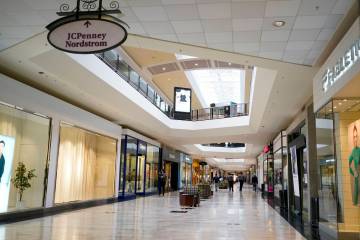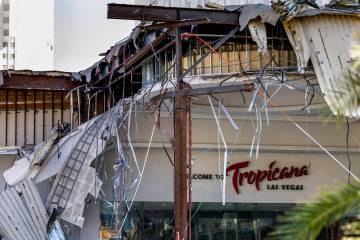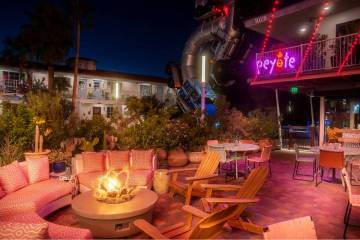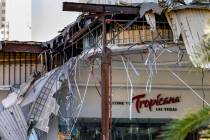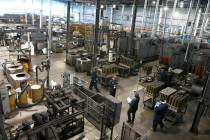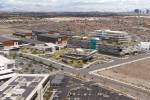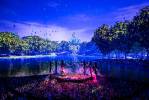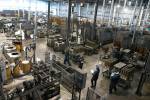Studio on Henderson factory floor enables viewers to see vitamin production
Lights. Camera. Action.
And keep making those vitamins.
Fans of the Home Shopping Network got to see inside the ProCaps Laboratories headquarters in Henderson this month and will see it in a new light for years to come.
That’s been a regular occurrence a couple of times a year since the 90,000-square-foot vitamin factory opened in 2003. But what viewers noticed this time was employees in white coats, hair nets and masks.
That marked the first time ProCaps has shown its vitamin-sale segments on HSN while the factory remained in operation. The reason is a glass fish bowl broadcast studio measuring 1,400 square feet built on the factory floor, allowing live broadcasts in a state-of-the-art studio while production goes on behind them.
ProCaps subsidiary, TWC Construction, one of the larger commercial contractors in Southern Nevada, teamed with engineers and staff at HSN, then built the first such studio within a factory in the country, said Matthew Ryba, CEO of TWC Construction.
“We were doing two to three remotes here a year, and would have to cease operations for at least five days because we had to stage the equipment and move it around,” Ryba said. “It’s a clean-room environment. We can’t have people walking around without hair nets. You can’t be pushing cameras in there.”
Losing that production time was a hindrance because on-air appearances bolstered sales, and it was important to gear up for that by producing vitamins ahead of time. It also meant going to Tampa, Fla., and filming in the HSN studios rather than on the factory floor.
“Doing that a few times per year meant we could not make vitamins for a few weeks each year, which is not a good thing for a vitamin manufacturing company,” said ProCaps founder Andrew Lessman, who appears on HSN. “For years, I have thought about building a glassed-in studio, isolated from our manufacturing floor, so we could make your vitamins — even during live shows.”
Ryba said the studio won’t hinder production when filming isn’t taking place. Walls of the studio open to provide more space, and the factory was realigned to make the operation more efficient.
Setting up the studio in the past was an ordeal, Ryba said. If they wanted a light in the back of a production area, the crew had to string a cord along the ceiling. If they wanted lights around Lessman, they had to hang them from the ceiling.
“If they wanted antennas, they would have to run wires for five days all over the place, so when you walked through you can pick up his voice when he was talking on air and walking through,” Ryba said. “Now it’s plug and go. Now the antenna guy who used to take 12 hours to get everything set up and get a feed, when he came here he had it hooked up in 20 minutes.”
The studio includes technology such as a dimmer lighting panel controlling more than 96 modules and a setup for five cameras in the studio and five outside and a movable rear wall that comes down during broadcasts to allow the cameras more room to maneuver, Ryba said.
Despite the space it takes up in the factory, the studio won’t go to waste the days it’s not used by HSN. It will serve as a setting for filming video communications for employees and sales for the Web, officials said.
ProCaps, which has more than 160 employees today, relocated to Henderson from California in 1997 before relocating to its current facility built by TWC in 2003. TWC also builds projects in Arizona, California and Utah.




